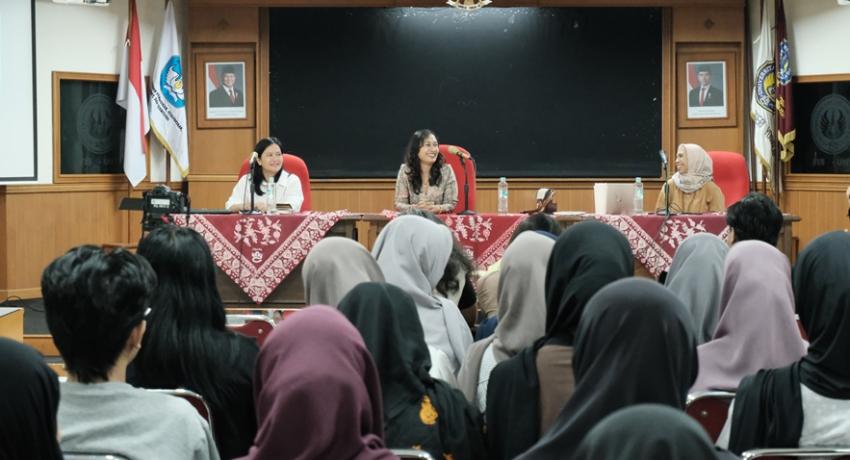At the heart of Southeast Asia’s cultural heritage, indigenous communities in Indonesia and Malaysia offer a living example of how tradition and sustainability can go hand in hand. Recognizing their deep-rooted relationship with land, natural resources, and local knowledge, Universitas Negeri Yogyakarta (UNY) hosted Episode 11 of the Eurasia Lecturer Series on May 14, 2025, to explore these communities’ roles in sustainable development. The event featured Assoc. Prof. Dr. Norwaliza from Universiti Pendidikan Sultan Idris, Malaysia, who delivered a powerful lecture titled “Learning from Indigenous Communities in Indonesia and Malaysia.”
Speaking passionately about her research, Dr. Norwaliza described how communities like the Orang Asli in Malaysia have long practiced ecological harmony through agroforestry and intercropping. In Indonesia, she highlighted the Dayak Maanyan people of Central Kalimantan, who rely on traditional medicinal plants such as Sungkai to support community health. These everyday practices, passed down through generations, reflect an intuitive understanding of nature—one that modern development efforts can learn from.
Dr. Norwaliza also shared success stories of community-based ecotourism in Sabah and Kalimantan that not only preserve culture and biodiversity but also create meaningful employment. She emphasized that these grassroots models align closely with global Sustainable Development Goals (SDGs), especially in health, life on land, and life below water. “Indigenous knowledge is not outdated—it is essential. It holds answers to the future we hope to build,” she said.
By inviting conversations like these, UNY is helping to shift the narrative: development doesn’t always have to mean starting from scratch. Sometimes, the best way forward is by looking back—listening to the voices of those who have long lived in balance with their environment. The session left students and academics alike inspired by the wisdom of indigenous communities and the reminder that sustainability is not just a goal—it’s a way of life.





